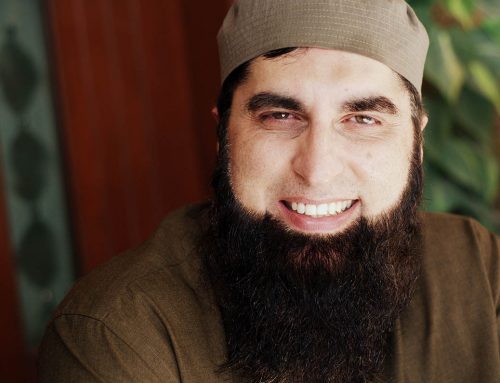Healthy living is part and parcel of Islam. Nazia Khatun sheds some light on Islam’s holistic approach to health and treating our bodies with respect.
Life is a precious gift all humans have been granted, which is why it’s vital to invest in your health and well-being. If staying trim isn’t enough of a motivation, maybe your faith will be: Islam focuses on looking after not only your spiritual and emotional health, but your physical health, as well. Our bodies are a divine gift, a blessing that came to us with working organs, limbs, and a heart. This is why it’s our duty to ensure that our bodies are not neglected or abused by ill maintenance or weak and lazy habits.
The Quran includes passages on the importance of healthy habits. For example, there are hadiths that tell how the Prophet Muhammad (s) valued being physically fit and following a healthy diet. Hazrat Ibn Umar (ra) narrated that the Prophet (s) said to “teach your children swimming, archery and horse riding.”
And Islam overall is a physically and mentally spiritual practice—your brain can only be fully engaged and focused on faith if it’s healthy and not bogged down with physical ailments. You need strength to perform things like salat or Hajj, one of the most demanding and fruitful experiences in any Muslim person’s life.
Below, Nazia Khatun of Fitness Reborn reveals five benefits of maintaining a healthy lifestyle and how it relates to Islam.
Disease Prevention & Appetite Control
More than one million people die each year from coronary heart diseases, which are largely caused by poor diets and excessive eating. The Prophet (s) disliked gluttony, and described the proper amounts to eat in order to stay healthy:
“No man fills a vessel worse than his stomach. A few morsels are enough for the son of Adam (human being) to keep his back upright. But if he must eat more, then he should fill one-third of his stomach with food, one-third with drink, and leave one-third empty for the air (easy breathing).”
Finding this balance in your diet is essential for efficiently running bodies, and a light, healthy diet also helps us control our thoughts and emotions. Here’s yet another quote from Ibrahim ibn Adham (ra):
“Anyone who controls his stomach is in control of his deen, and anyone who controls his hunger is in control of good behaviour. Disobedience toward Allah is nearest to a person who is satiated with a full stomach, and furthest away from a person who is hungry.”
Food Equals Energy
In the Prophet’s (s) era, food was chosen carefully, and homemade foods made with love and affection were considered the purest. Unfortunately, modern society has brought with it the proliferation of fast food chains. Food that is made in haste and filled with chemicals slows the body down, leading to a lack of focus. To stay physically and mentally sharp so you can perform your daily duties as a Muslim, follow a diet centered on homemade, nutritious food.
A Restorative Sleep
A healthy diet and daily exercise not only help boost energy levels, but they also can help improve the quality of your sleep. Sleep is an essential part of taking good care of your body—it allows you to recover and mend. And when you’re well-rested and mentally strong, you can give your focus purely to Allah when praying.
A Solution for Depression
Besides helping you stay trim, exercise also can reduce depression, and some studies have shown it can be as effective as medication. Exercise also helps improve memory and other cognitive functions, and is thought to protect the brain against dementia. One Harvard University researcher called exercise the “Miracle-Gro for the brain.”
A Well-Lived Life
Whatever it is you love in life, whether it be your kids, travel, sports, or fashion, everything is more enjoyable when you’re feeling healthy and fit. Our creator wants us to be happy and live a fruitful life, so make sure you maintain healthy diet and exercise habits to be able to enjoy every moment. SW
Nazia Khatun,
www.fitnessrebornuk.com



